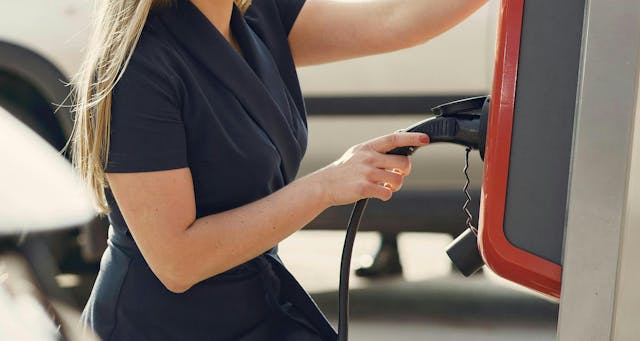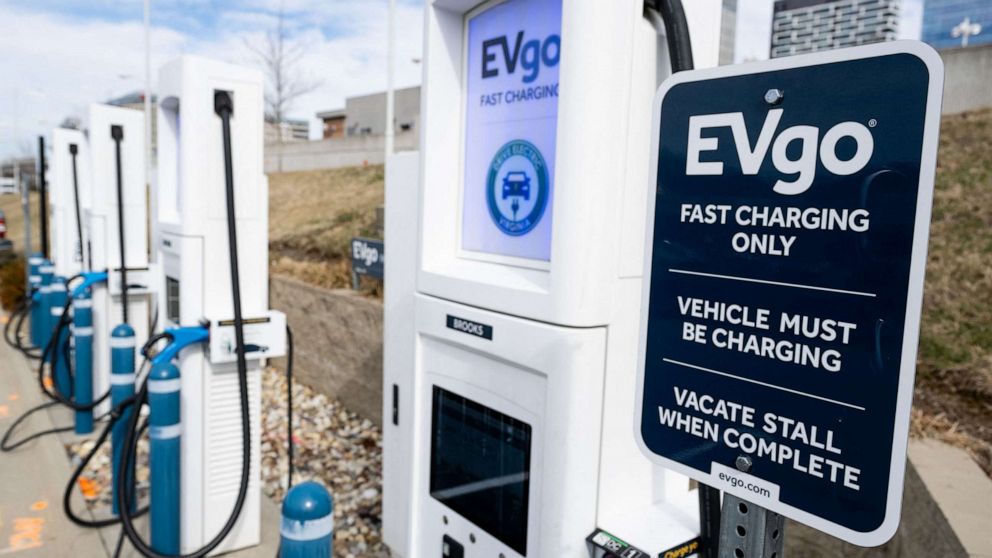The Future of Electric Vehicles and Why You Should Buy EV Charging news Now
The Future of Electric Vehicles and Why You Should Buy EV Charging news Now
Blog Article
Top EV Charging Information: Secret Updates on Infrastructure and Advancement
Current Improvements in Fast-Charging Innovation

Moreover, developments in battery innovation, including boosted thermal monitoring systems and greater power density batteries, complement fast-charging capabilities. These developments minimize the risk of battery deterioration during quick charging, guaranteeing longevity and efficiency for EV proprietors.
In addition, the integration of smart billing services is boosting individual experience, allowing real-time tracking and dynamic prices designs. EV Charging news. This flexibility allows vehicle drivers to enhance billing prices and times based upon grid need
As car manufacturers continue to buy fast-charging networks, the partnership in between industry stakeholders is vital. Partnerships between charging terminal providers and auto producers are leading the way for substantial coverage, inevitably cultivating a much more robust EV ecological community. These advancements are crucial in sustaining the transition to sustainable transport.
Government Efforts for Charging Development
Government efforts play a crucial function in the expansion of electric car (EV) charging facilities, promoting the shift to sustainable transport. Various federal and state programs are being carried out to boost billing access, decrease the economic concern on customers, and advertise the fostering of electric lorries.
Notably, the U.S. federal government has alloted substantial funding with the Framework Financial Investment and Jobs Act, which sets aside $7.5 billion for EV billing network growth across the nation. This financing is targeted at releasing hundreds of new charging stations, specifically in underserved areas, thereby dealing with variety anxiousness among prospective EV purchasers.
Furthermore, many states are enacting regulation to improve the allowing procedure for charging station installments, which is vital for increasing implementation. Motivations such as tax credit histories and rebates for both consumers and businesses are additionally being presented to encourage the installment of charging infrastructure.
Moreover, public-private collaborations are significantly becoming a focus, leveraging personal financial investment to match federal government funding. These initiatives emphasize a joint strategy vital for developing a detailed and efficient EV billing network, inevitably adding to a greener and more lasting future.
Ingenious Battery Solutions Enhancing Efficiency
Revolutionizing the landscape of electric lorry (EV) technology, cutting-edge battery solutions are significantly improving effectiveness and performance. Developments in battery chemistry, specifically with lithium-sulfur and solid-state batteries, are bring about boosted power density, which enables for longer varieties and faster billing times. These brand-new battery types have the potential to outperform standard lithium-ion batteries by providing greater capabilities while lowering weight, thus improving general car effectiveness.
Moreover, developments in battery management systems (BMS) are optimizing energy usage and prolonging battery life expectancy. Intelligent formulas monitor battery health and efficiency, enabling real-time changes to charging and discharging procedures. This not only improves the performance of the battery but also makes sure a more sustainable and reliable power source for EVs.
Furthermore, the combination of recycling modern technologies is attending to the environmental influence of battery manufacturing and disposal. Developments in second-life applications for EV batteries are promoting their usage in energy storage space systems, adding to a round economy.
As these cutting-edge battery options remain to advance, they guarantee to change the EV market, making electrical lorries extra accessible and attractive to a broader audience while sustaining international sustainability goals.

Partnership In Between Automakers and Billing Networks
Recognizing the essential requirement this post for a robust charging infrastructure, automakers are significantly collaborating with charging network carriers to improve the EV ownership experience (EV Charging news). These partnerships aim to create a smooth charging community that benefits customers and sustains the transition to electric automobiles
Major auto brands are joining pressures with established billing networks to expand their billing terminal insurance coverage, guaranteeing motorists have accessibility to trusted and practical billing alternatives. Collaborations with networks like ChargePoint and Electrify America enable automakers to integrate charging solutions straight right into their automobiles' navigating systems, leading individuals to the nearest stations and supplying real-time schedule updates.
Additionally, these partnerships commonly lead to the growth of fast-charging modern technologies that considerably decrease the time needed to recharge an EV. By pooling resources and proficiency, automakers check out this site and charging networks can introduce faster, developing options that fulfill the expanding demand for electrical movement.
In enhancement, joint efforts might likewise lead to more standardized charging procedures, which can reduce customer complication and promote more comprehensive EV fostering. Overall, these critical partnerships are crucial in constructing a effective and straightforward billing framework that satisfies the needs of a broadening electric vehicle market.
Challenges Encountering EV Billing Framework
As the electrical lorry market remains to grow, numerous difficulties are emerging that prevent the advancement of a detailed charging infrastructure. Among the key barriers is the insufficient variety of billing stations, especially in underserved and country city locations. This void produces variety anxiety amongst potential EV buyers, discouraging them from making the switch.
Additionally, the lack of standardization in billing modern technology makes complex the infrastructure landscape. Variations in plug kinds and billing speeds can develop complication for customers and raise operational complexities for billing network drivers.
An additional pushing problem is the high helpful hints cost linked with the installment and maintenance of billing terminals, which can be an obstacle for both public entities and private companies. Lastly, regulative difficulties and zoning constraints can postpone the implementation of billing facilities, hindering progression in broadening crucial solutions. Dealing with these challenges will certainly be essential for promoting a robust EV community that sustains the shift to sustainable transport.
Final Thought
In verdict, the ongoing advancements in EV billing innovation, supported by substantial government campaigns and ingenious battery solutions, are crucial for the development and efficiency of electrical lorry framework. Collaborations in between automakers and charging companies further enhance station protection, attending to the growing demand for available billing alternatives. In spite of obstacles that continue within the EV charging landscape, these growths signify a favorable trajectory in the direction of an extra sustainable and effective electric car community.
Developments in billing infrastructure have actually led to the growth of ultra-fast battery chargers capable of delivering up to 350 kW of power, considerably lowering charging times. Variants in plug kinds and billing rates can create complication for customers and increase operational intricacies for charging network drivers.In final thought, the ongoing improvements in EV billing modern technology, sustained by significant government initiatives and ingenious battery options, are vital for the growth and effectiveness of electrical automobile infrastructure. Cooperations between car manufacturers and charging providers even more enhance terminal coverage, addressing the growing need for accessible billing alternatives. Despite obstacles that continue within the EV charging landscape, these growths indicate a positive trajectory in the direction of an extra reliable and lasting electric lorry environment.
Report this page